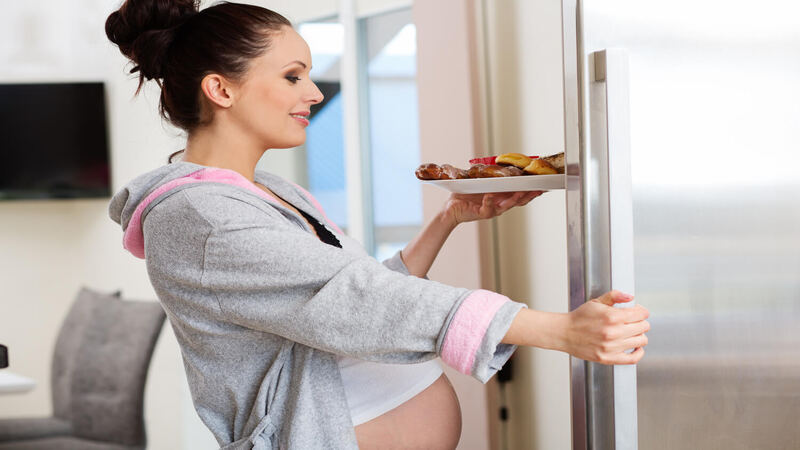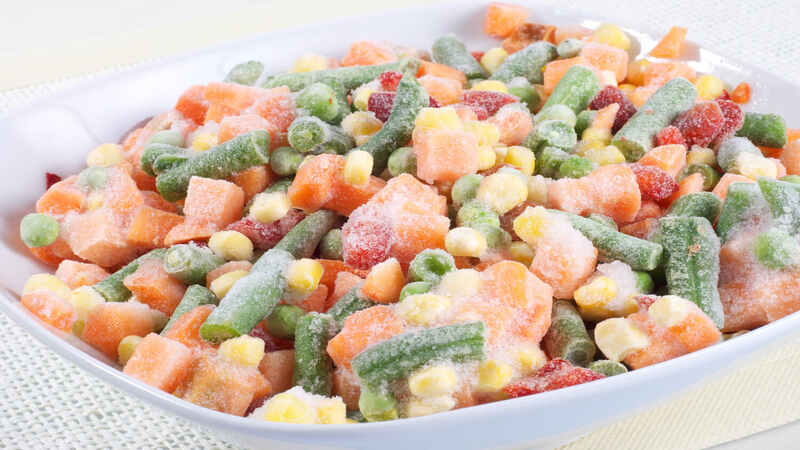 Fast city lives and late working hours do not give ample time to working women to cook for themselves and their families every single day. As they say, necessity is the mother of invention and this necessity gave way to the advent of frozen foods and ready-to-eat meals.
Fast city lives and late working hours do not give ample time to working women to cook for themselves and their families every single day. As they say, necessity is the mother of invention and this necessity gave way to the advent of frozen foods and ready-to-eat meals.
Markets are flooded with various options and you get to choose from wide variants, ranging from muttar paneer to chicken makhani. These ready-to-eat meals are simple to use and hence a lot of people opt for them. Even though these frozen and ready-to-eat meals cannot be deemed as dangerous, they cannot be part of your daily diet if you are expecting them.
Is it Safe to Consume Ready-To-Eat, Frozen, and Precooked Meals During Pregnancy?
Yes, they are considered safe, if the storage, cooking, and serving instructions are diligently followed. Yet, these foods cannot and must not be consumed regularly during pregnancy.
Here, we list down the harmful effects these meals can have on a pregnant woman and the baby.
1. Preservatives in Ready to Eat Meals
Ready-to-eat meals are gaining a lot of popularity these days. They are basically food products that are cooked beforehand and then frozen. When you want to eat them, all you have to do is just heat them up and serve. Since they are so convenient and hassle-free it has become a staple in some households. What many fail to understand is these food products are saturated with preservatives and chemicals and have high sodium content.
An expecting mother needs to be extremely careful about her diet and consuming this kind of food is not something she should do on a regular basis. Ready-to-cook meals if not stored properly can get contaminated very easily, especially meals that include dairy, poultry, and meat products.
They could cause Listeriosis and Toxoplasmosis. The early symptoms of these infections are slight fever, hence they are difficult to detect. In some cases, these infections can cause miscarriage as well. Listeriosis and Toxoplasmosis can also affect the unborn baby severely.
[Read : Food Poisoning During Pregnancy]
2. Nutrition Lost in Pre Cooked Meals
Pre-cooked meals are not very different from ready-to-eat meals. Pre-cooked meals could be homemade meals that are frozen in the household refrigerator and eaten during the course of a few days or even a month. This is a common practice among working couples.
Even though the food is cooked at home, eating food that is prepared days ago is not very conducive especially during pregnancy. Most of the nutrition is lost in the freezing process.
Freezing deactivates the pathogens in food. However, there is a possibility that the pathogens may get activated again when the food is thawed. This can be harmful to the mother and the unborn baby.
3. Loss of Nutrients in Frozen Foods
Frozen foods, mainly consist of frozen meat, poultry, fruits, and vegetables. Frozen foods are frozen below 9.5°C and hence the microorganisms in them do not grow. The formation of large ice crystals during the freezing process destroys the texture of the products and even reduces the natural juices.
These fruits and vegetables are not very nutritious since they have been stored for a very long time and fruits and vegetables are best when eaten fresh.
Vitamin C is non-existent in frozen foods. There is a massive loss of Vitamin B1, Vitamin B2, and Vitamin A. It is safe to conclude that the most important nutrients that a pregnant woman needs are absent in frozen meals.
What Precautions Should I Take While Eating Ready-To-Eat or Frozen Meals During Pregnancy?

Eating frozen, pre-cooked, and ready-to-eat meals every day may have certain disadvantages. However, eating them once in a while is not going to cause serious problems unless you take certain precautions like:
- Immediately refrigerate the frozen food you purchase from the market, if they are exposed to the heat for a long time, make sure you eat them in a day or two.
- Always, and we repeat, always, follow the instructions to warm and serve frozen or ready to cook meals.
- When you warm the food, make sure the center portion is piping hot.
- Manually change the temperature of your refrigerator to less than 5° C before storing frozen food in the fridge. Freezers should be maintained below -18 degrees Celsius.
- Keep your refrigerator clean, as the frozen food will last longer in a clean and hygienic refrigerator.
- Always consume the food way before the expiry date.
- Always opt for food that has low fat and salt content. Saturated fats should not be greater than 5g per 100g and salt should be limited to 1.5g per 100g.
- Do not refreeze food that is thawed.
- Follow the instruction on the package. They are there for a reason.
- If there are frequent power cuts in your locality, avoid shopping for frozen foods from your local grocery stores.
- If you face frequent power cuts at your home, consume frozen foods as early as possible and don’t store them for long.
- Use clean utensils while warming or heating the meals.
- Make some salad and some fresh rotis to accompany your meal so as to get the nutrients that you need during pregnancy.
Pregnant women need to have a healthy diet. Once in a while, it is alright to indulge in frozen and ready-to-eat meals, but nothing is better than a fresh home-cooked meal when you are pregnant. It’s always better to be safe than sorry.
[Read : Healthy Diet During Pregnancy]
FAQ’s
1. Can I Consume Ready to Eat Meals When Pregnant?
Occasionally yes. Do not make this a habit. Fresh cooked food is any day safer.
2. Will Frozen Meals Hurt My Baby During Pregnancy?
In some cases, it might. These foods use preservatives to increase shelf life. This can harm the fetus.
3. Are Pre-Cooked Meals Healthy During Pregnancy?
No, they are not. A lot of preservatives and additives are used in these. Also, nutrients are lost in pre-cooked meals.
4. Can Frozen Meals Lead to Birth Defects or Miscarriage?
No, they won’t. They are not that harmful. The nutrient content in these foods are very low when compared to fresh cooked meals.
Read Also: Instant Noodles During Pregnancy – Can I Eat?
